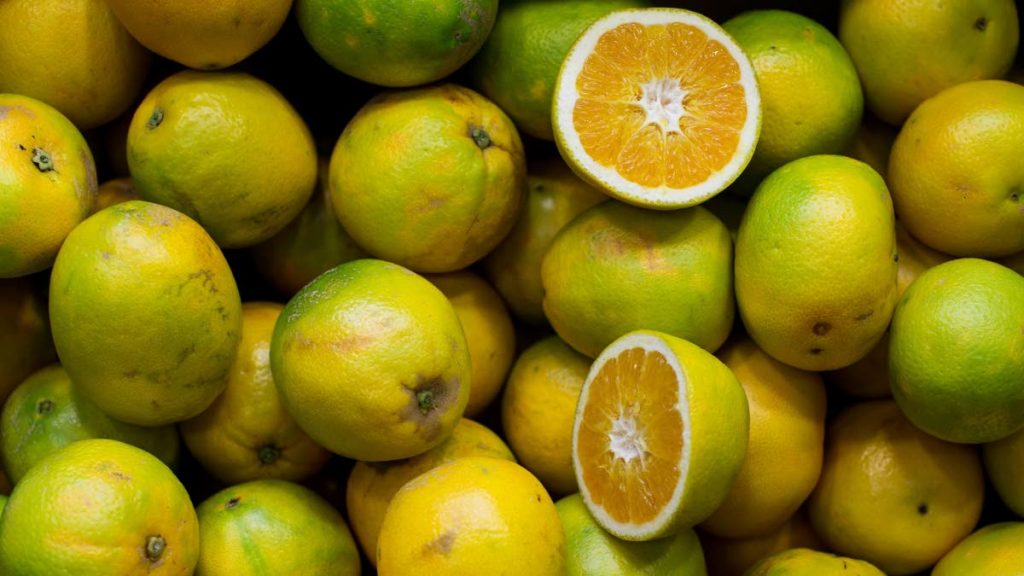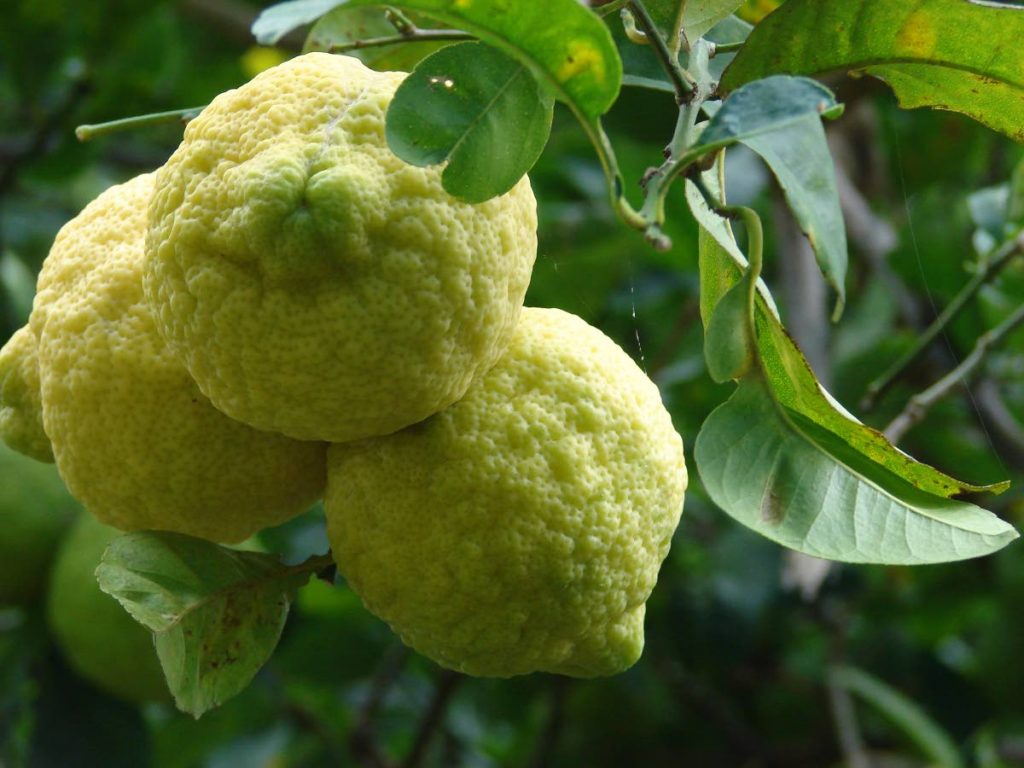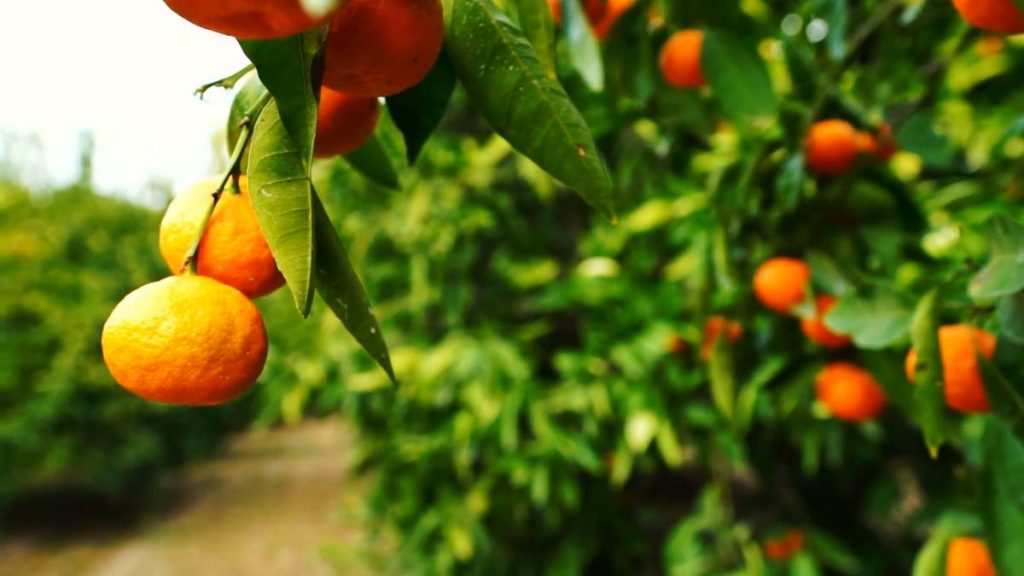Moves to revitalise citrus

THE citrus industry forms an important component in Government's efforts to diversify the economy.
Theme IV of the Vision 2030 national development plan identifies the development of globally competitive business as key to economic diversification. Government has earmarked agriculture and agro-processing as potential sectors for further development and economic diversification.
Responding to questions from Business Day, the ministry in charge of this diversification thrust, the Ministry of Trade and Industry, said based on consultation with stakeholders, it’s found that domestic manufacturers of citrus juices and juice drinks utilise a significant percentage of domestic citrus as inputs into their beverages. But given the high seasonality of local citrus, as well as the price, some manufacturers note that, even after utilising all available local supply, only about 20 per cent of their citrus needs can be sourced locally with the remaining 80 per cent being sourced from foreign markets in order to keep product lines in operation.

This means that there is a significant demand for citrus locally and the industry can be revitalised if some of the supply-side challenges are overcome, including the effects of the citrus greening disease, labour challenges and age of the farming population.
To strengthen the citrus industry, the ministry has been taking a few initiatives.
One of them is the Grant Fund Facility, which provides up to $250,000 to small and medium-sized export oriented entrepreneurs to acquire machinery and equipment. From its inception, agro-processing, cocoa processors and chocolate manufacturers have accessed funding under the facility. To date, the ministry said, six firms have received disbursements under this fund.
The Research Development Fund provides financial support to enterprises from the non-energy manufacturing and services sector. The fund aims to stimulate and support innovation and investment in new and advanced technology. Beneficiaries are eligible to grants of up to $1 million. This fund is also available to firms in the citrus industry.
The ministry has also partnered with the Agriculture Ministry to help the citrus industry, through the citrus rehabilitation programme. In early 2017, citrus greening disease was discovered in TT, which caused premature defoliation of citrus trees, producing fruit with a bitter taste and ultimately killing citrus tree.

By introducing disease-resistant stock, the Government is supporting and developing new and existing nurseries to produce citrus and substitute imports. The Agriculture Ministry has also begun to offer a number of free training courses for citrus farmers. These include courses on managing pests in citrus and principles of agri-business management. Citrus stakeholders, the ministry said, can also benefit when the Moruga Agro-Processing Light Industrial Park is commissioned. The park was supposed to be opened since February but is behind schedule. The ministry could not say when it will be ready.
This park was earmarked for processing raw materials and intermediate products (specifically from agriculture, forests and fisheries); manufacturing food products and converting fresh produce into semi- processed raw materials or processed products (including the manufacture of bakery products, pasta, confectionery and starch products); beverage manufacturing, including for wines and spirits; and facilities for canning.
 This project will facilitate economic growth and the development of environmentally-sustainable local, regional and international businesses, engaged in downstream activities in the agricultural sector. The park will be built on 18.83 acres of state land situated in Saunders Trace, and will initially house five factory shells. The park will be sub-divided into 18 plots of land of varying sizes, comprising small lots at 2,000 to 3,000 square metres, medium lots at 3,500 to 4,500 square metres and large lots at 5,000 to 7,500 square metres. “Therefore, business of all sizes will be accommodated and equipped with all required infrastructure,” the ministry said.
This project will facilitate economic growth and the development of environmentally-sustainable local, regional and international businesses, engaged in downstream activities in the agricultural sector. The park will be built on 18.83 acres of state land situated in Saunders Trace, and will initially house five factory shells. The park will be sub-divided into 18 plots of land of varying sizes, comprising small lots at 2,000 to 3,000 square metres, medium lots at 3,500 to 4,500 square metres and large lots at 5,000 to 7,500 square metres. “Therefore, business of all sizes will be accommodated and equipped with all required infrastructure,” the ministry said.
Between 2015 and 2019, the ministry, in collaboration with ExporTT and the TT Manufacturers’ Association embarked on a series of trade missions. These included ExpoCaribe in Santiago de Cuba, Cuba; Havana International Fair (FIHAV 2016) in Havana, Cuba; numerous inwards buyers’ missions (2017-2019) at the annual Trade and Investment Convention (TIC) in TT and at the In Buy TT trade mission in 2015. Blue Waters Products Ltd, SM Jaleel and Fresh Start Ltd exhibited citrus products on each of these missions. The objective was to promote these products in foreign markets so as to increase exports of citrus and citrus products. Business Day asked what was the outcome of these mission but the ministry was unable to give feedback. The companies declined or did not respond to requests for comment.
While domestic citrus has no specific advantage compared to citrus from other jurisdictions, there are benefits to be derived from citrus fruits in general. Citrus rind is one of the most important citrus by-products which is a useful input into other manufacturing processes specifically in the manufacture of fragrance, essence, essential oils, flavonoids, or even feed stock for animals. Additionally, citric acid, vitamin C and pectin can be extracted from citrus rind and used in other products, most notably in the food and beverage sector or in cosmetics. The rind also contains strong medicinal properties such as limonene, myrcene, linalool, and pinene used in the pharmaceutical industry. These are used in different medications to assist in pain management and anxiety reduction. The ministry was unable to provide data on these other uses for citrus fruits although it acknowledged there are applications for citrus apart from making juice.
Challenges facing citrus
The domestic citrus industry, like many agricultural industries faces several challenges. These include competition with cheaper imported concentrate juices from larger countries, praedial larceny, pests and disease. Responding the questions from Business Day, the Ministry of Agriculture, Lands and Fisheries said the industry was seriously impacted by the discovery of citrus greening disease in April 2017. This disease is caused by a vector-transmitted pathogen. Common symptoms include the yellowing of the veins of leaves, premature defoliation and ultimately, the death of the plant.

Affected trees have stunted growth, bear multiple flowers (most of which fall off) and produce small, irregularly shaped fruit with a thick pale peel that remains green at the bottom and tastes bitter. The disease has, however, been nipped in the bud after consultation with an institute in Florida and other international organisations.
Steps were taken to assist the ministry with disease management, including educating farmers on the use of improved fertilisation strategies; engaging in enhanced cultural practices; strategic pesticide use and the introduction of disease-tolerant plants. The ministry could not say at present if there has been a rebound since intervention, nor the number of affected trees.
The ministry is, however, optimistic these steps will improve the resistance of locally grown citrus crops to pests and disease, hopefully boosting production in the long term. To combat theft, the praedial larceny unit was created. The unit was first formed in 2009, scrapped in 2012 but relaunched in 2015 as a way to bring a measure of relief to farmers with respect to this threat. The ministry did not provide any data regarding the activities of the unit.
 According to ministry data, there are approximately 2,100 active citrus farmers in TT. The ministry provides several incentives to encourage citrus cultivation in TT. These include vehicles used in farming; machinery and equipment; purchase of irrigation systems; demonstration of good agricultural practices, such as soil conservation; land preparation and clearing; demonstration of improved agronomic practices; the implementation of integrated pest management practices; a facility to apply for grant funding up to $100,000 per applicant; free training courses on citrus production; free disease diagnoses; free soil sampling; free on-farm extension services with recommendations for improved production, and disease management; opportunities to market products at Namdevco farmers’ markets and to facilitate export and minimise the potential entry of diseases harmful to the citrus industry at main ports of entry into TT.
According to ministry data, there are approximately 2,100 active citrus farmers in TT. The ministry provides several incentives to encourage citrus cultivation in TT. These include vehicles used in farming; machinery and equipment; purchase of irrigation systems; demonstration of good agricultural practices, such as soil conservation; land preparation and clearing; demonstration of improved agronomic practices; the implementation of integrated pest management practices; a facility to apply for grant funding up to $100,000 per applicant; free training courses on citrus production; free disease diagnoses; free soil sampling; free on-farm extension services with recommendations for improved production, and disease management; opportunities to market products at Namdevco farmers’ markets and to facilitate export and minimise the potential entry of diseases harmful to the citrus industry at main ports of entry into TT.
While TT does export some citrus to the region, the ministry said the majority of this country's citrus is consumed locally.


Comments
"Moves to revitalise citrus"